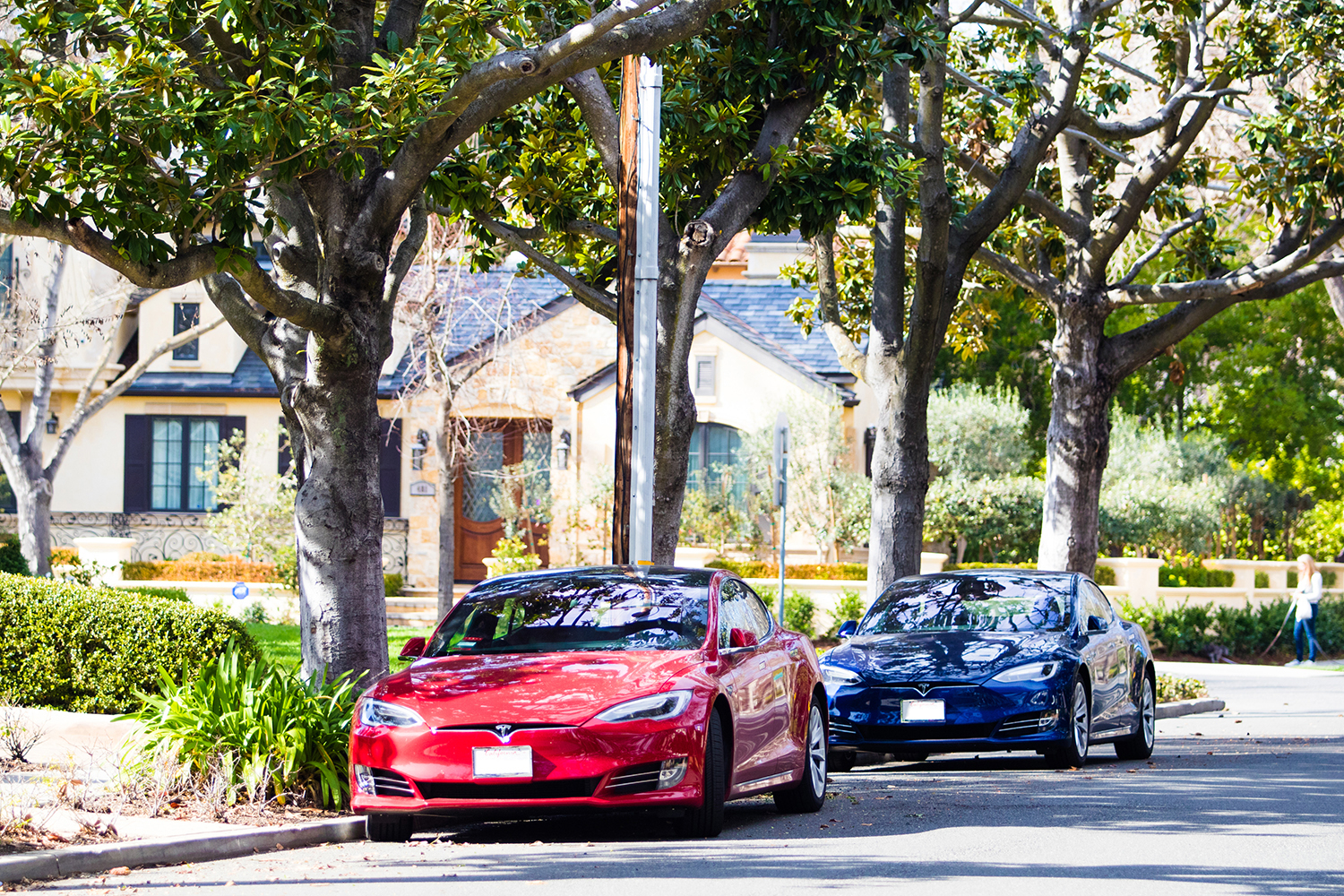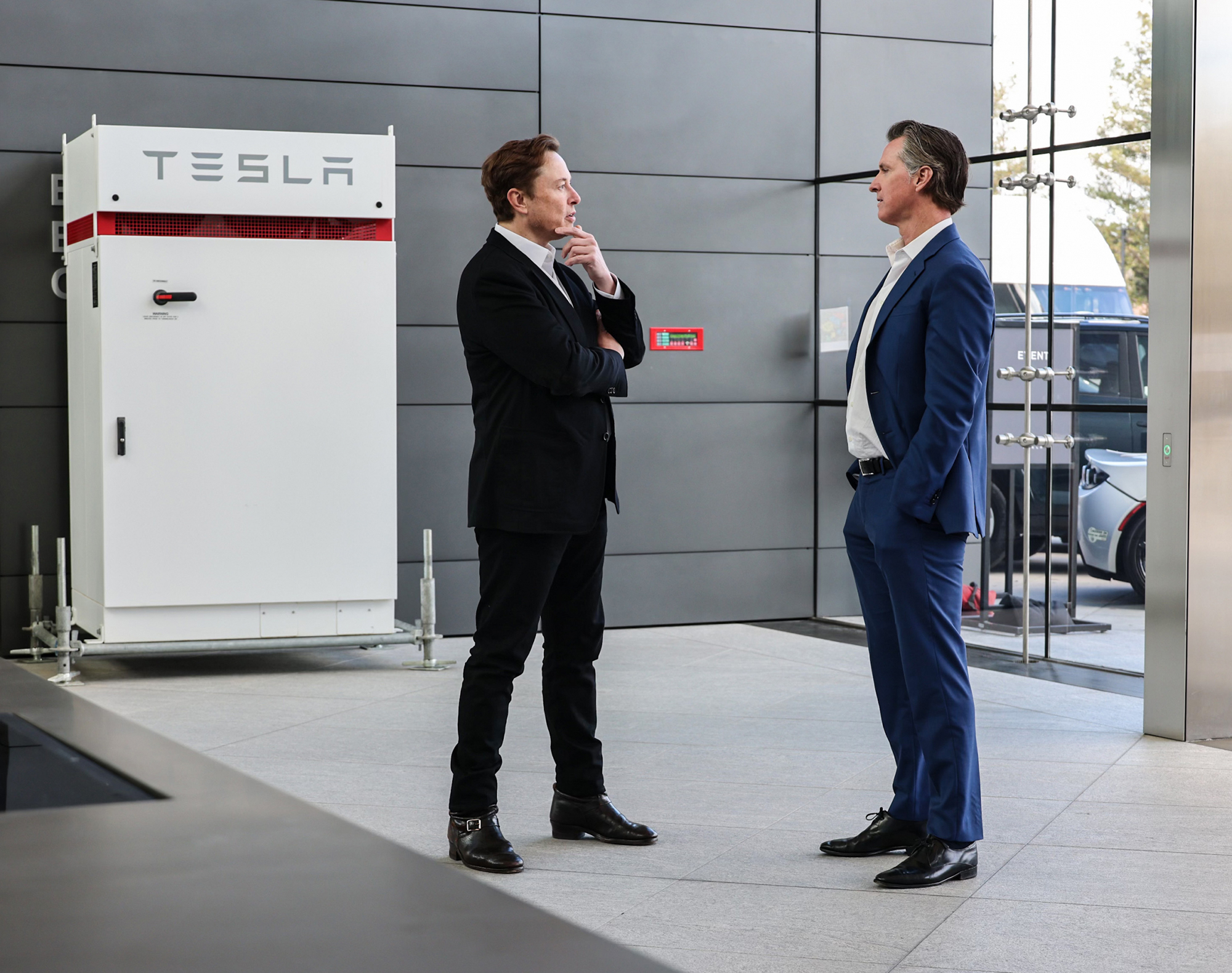Seeking to accelerate Tesla's plans to open its new engineering headquarters, the City Council approved a deal with the car giant on Tuesday, Jan. 16, to expedite an upgrade of a substation on Hanover Street.
With little discussion and no dissent, the council unanimously supported a public private partnership under which the city and Tesla would split the $24-million cost of replacing two transformers and adding substation breakers, a power distribution center and two 12 kV feeders. Under the deal, Palo A lot would pay $12 million for this work as well as an additional $3 million to transfer feeder lines that do not serve Tesla to the new transformers, bringing the city's total share to $15 million.
Utilities Director Dean Batchelor told the council that the partnership represents the best path forward for replacing equipment that he claimed would have to be replaced soon anyway. The department is now in the early stages of a $300-million grid modernization program that calls for replacing 4 kV (kilovolt) lines throughout the city with 12 kV lines, a switch that would allow more residences and businesses to switch from gas-fueled vehicles and appliances to electric ones.
Batchelor said that the Hanover Street transformers, which are located near Tesla's new engineering headquarters at 1501 Page Mill Road, are nearing the end of their useful life.
"We think this is going to be a really good partnership with Tesla and we believe there's no risk to the city by doing this," Batchelor said. "If we were going to this on our own, we estimate we'd be spending somewhere around $18 to $20 million that the city would fund itself."
"By doing this, we're saving about $5 million to $6 million in cost from this partnership."
Patrick Bean, Tesla's director of charging and energy policies, called the deal a mutually beneficial way to increase the local grid capacity." He said the company is planning to invest about $150 million in the new engineering headquarters, which formerly served as HP headquarters and which Tesla took over last year.
As part of the deal, Tesla has already gone out to bid and selected contractor to perform the work. It has also arranged for expedited delivery of all needed equipment.
"The area is in desperate need for new capacity," Bean said. "By taking up half the project cost as Tesla and 100% of cost to expedite, we ultimately think this is better for the community because we can bring it in at a lower cost than what would otherwise have occurred in the future.
"This additional capacity will be available for other companies and customers to use. And we believe that availability of capacity will help drive further investment in Palo Alto just like what we as Tesla are doing."
The council voted 6-0, with Vicki Veenker recusing, to approve the deal (Veenker, an attorney, works with Stanford University on patent issues and Stanford owns the land in Stanford Research Park that Tesla is leasing). Council member Greg Tanaka, who regularly votes against big-budget items, called the Tesla partnership "a pretty awesome deal for everyone involved."
"It seems like it's something that we have to build, that we want to build, and we have someone who's willing to pay for it, which is awesome," Tanaka said.
Meanwhile, the city is still planning for a broader update of the city grid, an effort that is expected to initially target oveSeeking to accelerate Tesla's plans to open to its new engineering headquarters, the City Council approved a deal with the car giant on Tuesday to expedite an upgrade of a substation on Hanover Street.
With little discussion and no dissent, the council unanimously supported a public private partnership under which the city and Tesla would split the $24-million cost of replacing two transformers and adding substation breakers, a power distribution center and two 12 kV feeders. Under the deal, Palo A lot would pay $12 million for this work as well as an additional $3 million to transfer feeder lines that do not serve Tesla to the new transformers, bringing the city's total share to $15 million.
Utilities Director Dean Batchelor told the council that the partnership represents the best path forward for replacing equipment that he claimed would have to be replaced soon anyway. The department is now in the early stages of a $300-million grid modernization program that calls for replacing 4 kV (kilovolt) lines throughout the city with 12 kV lines, a switch that would allow more residences and businesses to switch from gas-fueled vehicles and appliances to electric ones.
Batchelor said that the Hanover Street transformers, which are located near Tesla's new engineering headquarters at 1501 Page Mill Road, are nearing the end of their useful life.
"We think this is going to be a really good partnership with Tesla and we believe there's no risk to the city by doing this," Batchelor said. "If we were going to this on our own, we estimate we'd be spending somewhere around $18 to $20 million that the city would fund itself."
"By doing this, we're saving about $5 million to $6 million in cost from this partnership."
Patrick Bean, Tesla's director of charging and energy policies, called the deal a
mutually beneficial way to increase the local grid capacity." He said the company is planning to invest about $150 million in the new engineering headquarters, which formerly served as HP headquarters and which Tesla took over last year.
As part of the deal, Tesla has already gone out to bid and selected a contractor to perform the work. It has also arranged for expedited delivery of all needed equipment.
"The area is in desperate need for new capacity," Bean said. "By taking up half the project cost as Tesla and 100% of cost to expedite, we ultimately think this is better for the community because we can bring it in at a lower cost than what would otherwise have occurred in the future.
"This additional capacity will be available for other companies and customers to use. And we believe that availability of capacity will help drive further investment in Palo Alto just like what we as Tesla are doing."
The council voted 6-0, with Vicki Veenker recusing, to approve the deal (Veenker, an attorney, works with Stanford University on patent issues and Stanford owns the land in Stanford Research Park that Tesla is leasing). Council member Greg Tanaka, who regularly votes against big-budget items, called the Tesla partnership "a pretty awesome deal for everyone involved."
"It seems like it's something that we have to build, that we want to build, and we have someone who's willing to pay for it, which is awesome," Tanaka said.
Meanwhile, the city is still planning for a broader update of the city grid, an effort that is expected to initially target overhead lines and then move to underground utility districts. The replacement of overhead lines, which make up about 70% of the city's grid, is scheduled to be completed by 2027, while the remainder of the project is set to be finished by 2032, according to the Utilities Department.




Comments